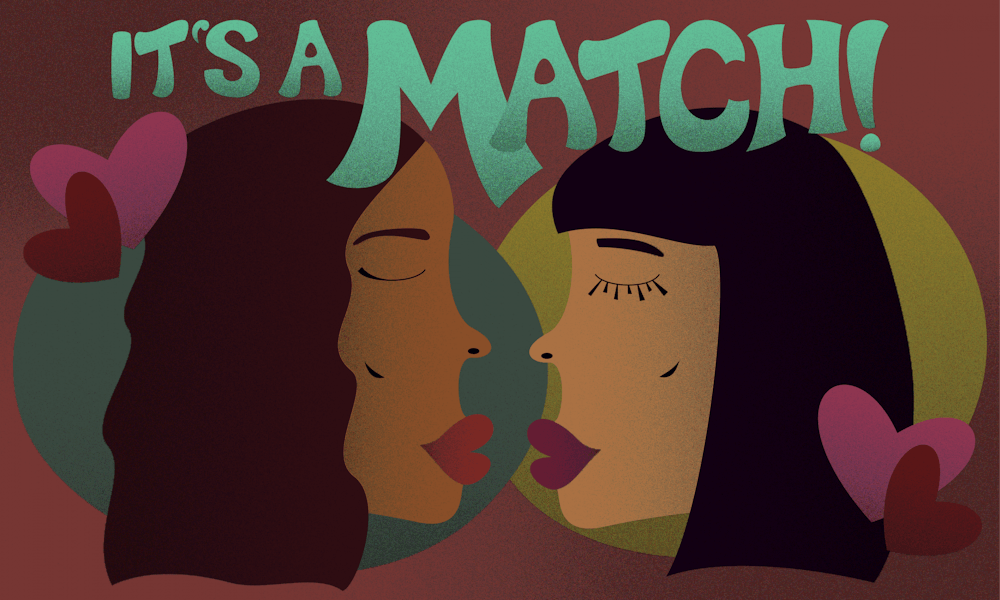Did you know that around a third of all relationships that started between 2015 and 2019 began online? Historically, your dating network would be limited to whoever you, your friends, and family know. Perhaps you could have met the love of life in class or at a party. But today, the most viable way to meet people is through the internet.
Alongside baking and fitness challenges, online dating seems to be one of the staple pastimes of lockdown life. In fact, Match Group’s second–quarter 2020 earnings report proves its popularity, revealing a sharp increase in subscribers and downloads since lockdowns began in March. All in all, dating apps are clearly more ubiquitous than ever.
When the concept of online dating was new, the idea of meeting someone through the big, bad internet was considered weird or creepy. Obviously, perspectives have changed and online dating has been normalized. Most people don’t give it a second thought and even if they’re not actively looking for something, a lot of people will still create accounts just to see who or what is out there. Although using dating apps isn’t inherently bad and couples who meet via dating apps are completely valid, it's important to acknowledge the issues with dating apps, especially since during pandemic life, they’re one of the few ways to meet people.
One of the major issues with dating apps like Tinder is that they are extremely photo–centric. In only a matter of seconds, you have to decide whether or not you want to date them based solely on their appearance. Some people don’t even bother to read bios while they’re swiping, while others don’t bother to write a bio. With a format like Tinder, it’s hard to get a glimpse of someone’s personality, and thus, you’re left to swipe based on superficial and inadequate information.
These apps focus on only one aspect of ourselves, which is how we look— or rather how we look after some photoshopping. In an ideal world, people would pick the best but most accurate photos of themselves—instead, dating profiles are riddled with Snapchat dog filter selfies and airbrushed thirst traps.
Secondly, the act of swiping is both satisfying and extremely dehumanizing. Swiping reduces users to objects, as it truly feels like you are shopping for humans. Swiping right has become synonymous with thinking that someone is attractive, and admittedly there is something super addicting about being able to make those quick judgements. But ultimately, this plays into the extremely appearance–centric nature of these apps.
You would think that using apps like this would be an ego boost. After all, you’re getting lots of matches, messages, and compliments. But research suggests that this isn't the case. In fact, Tinder users generally report lower levels of satisfaction in terms of body image than their Tinder–less counterparts. Using apps like Tinder as a source of validation and basing your self–esteem on how well you’re performing on it is an extremely unhealthy yet common pitfall.
Dating apps provide lots of options to choose from as well as the opportunity to vet someone prior to going out with or even meeting them, but sometimes too many options overcomplicate things. It’s easy to match with someone and start up a conversation, but it’s even easier to keep swiping in search of a better option instead.
The lack of incentive for building a meaningful connection leads to one of the absolute worst aspects of online dating: ghosting. It’s easy and detached: simply unmatch or block the person on the other side of the screen with no notice. No need to have a deep in–person conversation or feel any remorse—it’s so common that it feels like no should care.
It’s not just Tinder that poses these problems. Apps like Hinge and Bumble are often even more disappointing than Tinder even though they’re viewed as more serious and higher quality. When users fall into the same pitfalls as they did before, it can be even more difficult to get back up given the higher expectations. However, a notable and more positive aspect of Bumble is that only women are able to message first, which decreases the risk of sexual harassment, an issue that runs rampant on dating apps.
In normal times, there’s no right way to date. But, given the fact, that we’re in the middle of a pandemic, dating apps are one of the most convenient methods of getting to know new people safely. But it’s on us to not get sucked into the hole of negativity and rejection they can induce.

